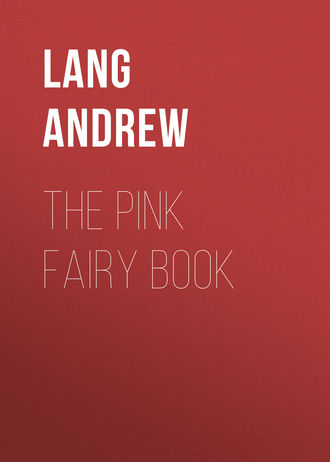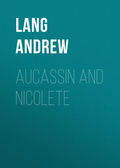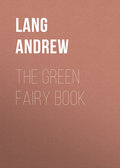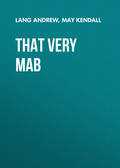
Lang Andrew
The Pink Fairy Book
Peter Bull
From the Danish
There once lived in Denmark a peasant and his wife who owned a very good farm, but had no children. They often lamented to each other that they had no one of their own to inherit all the wealth that they possessed. They continued to prosper, and became rich people, but there was no heir to it all.
One year it happened that they owned a pretty little bull-calf, which they called Peter. It was the prettiest little creature they had ever seen – so beautiful and so wise that it understood everything that was said to it, and so gentle and so full of play that both the man and his wife came to be as fond of it as if it had been their own child.
One day the man said to his wife, ‘I wonder, now, whether our parish clerk could teach Peter to talk; in that case we could not do better than adopt him as our son, and let him inherit all that we possess.’
‘Well, I don’t know,’ said his wife, ‘our clerk is tremendously learned, and knows much more than his Paternoster, and I could almost believe that he might be able to teach Peter to talk, for Peter has a wonderfully good head too. You might at least ask him about it.’
Off went the man to the clerk, and asked him whether he thought he could teach a bull-calf that they had to speak, for they wished so much to have it as their heir.
The clerk was no fool; he looked round about to see that no one could overhear them, and said, ‘Oh, yes, I can easily do that, but you must not speak to anyone about it. It must be done in all secrecy, and the priest must not know of it, otherwise I shall get into trouble, as it is forbidden. It will also cost you something, as some very expensive books are required.’
That did not matter at all, the man said; they would not care so very much what it cost. The clerk could have a hundred dollars to begin with to buy the books. He also promised to tell no one about it, and to bring the calf round in the evening.
He gave the clerk the hundred dollars on the spot, and in the evening took the calf round to him, and the clerk promised to do his best with it. In a week’s time he came back to the clerk to hear about the calf and see how it was thriving. The clerk, however, said that he could not get a sight of it, for then Peter would long after him and forget all that he had already learned. He was getting on well with his learning, but another hundred dollars were needed, as they must have more books. The peasant had the money with him, so he gave it to the clerk, and went home again with high hopes.
In another week the man came again to learn what progress Peter had made now.
‘He is getting on very well,’ said the clerk.
‘I suppose he can’t say anything yet?’ said the man.
‘Oh, yes,’ said the clerk, ‘he can say “Moo” now.’
‘Do you think he will get on with his learning?’ asked the peasant.
‘Oh, yes,’ said the clerk, ‘but I shall want another hundred dollars for books. Peter can’t learn well out of the ones that he has got.’
‘Well, well,’ said the man, ‘what must be spent shall be spent.’
So he gave the clerk the third hundred dollars for books, and a cask of good old ale for Peter. The clerk drank the ale himself, and gave the calf milk, which he thought would be better for it.
Some weeks passed, during which the peasant did not come round to ask after the calf, being frightened lest it should cost him another hundred dollars, for he had begun to squirm a bit at having to part with so much money. Meanwhile the clerk decided that the calf was as fat as it could be, so he killed it. After he had got all the beef out of the way he went inside, put on his black clothes, and made his way to the peasant’s house.
As soon as he had said ‘Good-day’ he asked, ‘Has Peter come home here?’
‘No, indeed, he hasn’t,’ said the man; ‘surely he hasn’t run away?’
‘I hope,’ said the clerk, ‘that he would not behave so contemptibly after all the trouble I have had to teach him, and all that I have spent upon him. I have had to spend at least a hundred dollars of my own money to buy books for him before I got him so far on. He could say anything he liked now, so he said to-day that he longed to see his parents again. I was willing to give him that pleasure, but I was afraid that he wouldn’t be able to find the way here by himself, so I made myself ready to go with him. When we had got outside the house I remembered that I had left my stick inside, and went in again to get it. When I came out again Peter had gone off on his own account. I thought he would be here, and if he isn’t I don’t know where he is.’
The peasant and his wife began to lament bitterly that Peter had run away in this fashion just when they were to have so much joy of him, and after they had spent so much on his education. The worst of it was that now they had no heir after all. The clerk comforted them as best he could; he also was greatly distressed that Peter should have behaved in such a way just when he should have gained honour from his pupil. Perhaps he had only gone astray, and he would advertise him at church next Sunday, and find out where anyone had seen him. Then he bade them ‘Good-bye,’ and went home nad dined on a good fat veal roast.
Now it so happened that the clerk took in a newspaper, and one day he chanced to read in its columns of a new merchant who had settled in a town at some distance, and whose name was ‘Peter Bull.’ He put the newspaper in his pocket, and went round to the sorrowing couple who had lost their heir. He read the paragraph to them, and added, ‘I wonder, now, whether that could be your bull-calf Peter?’
‘Yes, of course it is,’ said the man; ‘who else would it be?’
His wife then spoke up and said, ‘You must set out, good man, and see about him, for it is him, I am perfectly certain. Take a good sum of money with you, too; for who knows but what he may want some cash now that he has turned a merchant!’
Next day the man got a bag of money on his back and a sandwich in his pocket, and his pipe in his mouth, and set out for the town where the new merchant lived. It was no short way, and he travelled for many days before he finally arrived there. He reached it one morning, just at daybreak, found out the right place, and asked if the merchant was at home. Yes, he was, said the people, but he was not up yet.
‘That doesn’t matter,’ said the peasant, ‘for I am his father. Just show me up to his bedroom.’
He was shown up to the room, and as soon as he entered it, ad caught sight of the merchant, he recognised him at once. He had the same broad forehead, the same thick neck, and same red hair, but in other respects he was now like a human being. The peasant rushed straight up to him and took a firm hold of him. ‘O Peter,’ said he, ‘what a sorrow you have caused us, both myself and your mother, by running off like this just as we had got you well educated! Get up, now, so that I can see you properly, and have a talk with you.’
The merchant thought that it was a lunatic who had made his way in to him, and thought it best to take things quietly.
‘All right,’ said he, ‘I shall do so at once.’ He got out of bed and made haste to dress himself.
‘Ay,’ said the peasant, ‘now I can see how clever our clerk is. He has done well by you, for now you look just like a human being. If one didn’t know it, one would never think that it was you we got from the red cow; will you come home with me now?’
‘No,’ said the merchant, ‘I can’t find time just now. I have a big business to look after.’
‘You could have the farm at once, you know,’ said the peasant, ‘and we old people would retire. But if you would rather stay in business, of course you may do so. Are you in want of anything?’
‘Oh, yes,’ said the merchant; ‘I want nothing so much as money. A merchant has always a use for that.’
‘I can well believe that,’ said the peasant, ‘for you had nothing at all to start with. I have brought some with me for that very end.’ With that he emptied his bag of money out upon the table, so that it was all covered with bright dollars.
When the merchant saw what kind of man he had before him he began to speak him fair, and invited him to stay with him for some days, so that they might have some more talk together.
‘Very well,’ said the peasant, ‘but you must call me “Father.”’
‘I have neither father nor mother alive,’ said Peter Bull.
‘I know that,’ said the man; ‘your real father was sold at Hamburg last Michaelmas, and your real mother died while calving in spring; but my wife and I have adopted you as our own, and you are our only heir, so you must call me “Father.”’
Peter Bull was quite willing to do so, and it was settled that he should keep the money, while the peasant made his will and left to him all that he had, before he went home to his wife, and told her the whole story.
She was delighted to hear that it was true enough about Peter Bull – that he was no other than their own bull-calf.
‘You must go at once and tell the clerk,’ said she, ‘and pay him the hundred dollars of his own money that he spent upon our son. He has earned them well, and more besides, for all the joy he has given us in having such a son and heir.’
The man agreed with this, and thanked the clerk for all he had done, and gave him two hundred dollars. Then he sold the farm, and removed with his wife to the town where their dear son and heir was living. To him they gave all their wealth, and lived with him till their dying day.
The Bird ‘Grip’
Translated from the Swedish
It happened once that a king, who had a great kingdom and three sons, became blind, and no human skill or art could restore to him his sight. At last there came to the palace an old woman, who told him that in the whole world there was only one thing that could give him back his sight, and that was to get the bird Grip; his song would open the King’s eyes.
When the king’s eldest son heard this he offered to bring the bird Grip, which was kept in a cage by a king in another country, and carefully guarded as his greatest treasure. The blind king was greatly rejoiced at his son’s resolve, fitted him out in the best way he could, and let him go. When the prince had ridden some distance he came to an inn, in which there were many guests, all of whom were merry, and drank and sang and played at dice. This joyous life pleased the prince so well that he stayed in the inn, took part in the playing and drinking, and forgot both his blind father and the bird Grip.
Meanwhile the king waited with both hope and anxiety for his son’s return, but as time went on and nothing was heard of him, the second prince asked leave to go in search of his brother, as well as to bring the bird Grip. The king granted his request, and fitted him out in the finest fashion. But when the prince came to the inn and found his brother among his merry companions, he also remained there and forgot both the bird Grip and his blind father.
When the king noticed that neither of his sons returned, although a long time had passed since the second one set out, he was greatly distressed, for not only had he lost all hope of getting back his sight, but he had also lost his two eldest sons. The youngest now came to him, and offered to go in search of his brothers and to bring the bird Grip; he was quite certain that he would succeed in this. The king was unwilling to risk his third son on such an errand, but he begged so long that his father had at last to consent. This prince also was fitted out in the finest manner, like his brothers, and so rode away.
He also turned into the same inn as his brothers, and when these saw him they assailed him with many entreaties to remain with them and share their merry life. But he answered that now, when he had found them, his next task was to get the bird Grip, for which his blind father was longing, and so he had not a single hour to spare with them in the inn. He then said farewell to his brothers, and rode on to find another inn in which to pass the night. When he had ridden a long way, and it began to grow dark, he came to a house which lay deep in the forest. Here he was received in a very friendly manner by the host, who put his horse into the stable, and led the prince himself into the guest-chamber, where he ordered a maid-servant to lay the cloth and set down the supper. It was now dark, and while the girl was laying the cloth and setting down the dishes, and the prince had begun to appease his hunger, he heard the most piteous shrieks and cries from the next room. He sprang up from the table and asked the girl what those cries were, and whether he had fallen into a den of robbers. The girl answered that these shrieks were heard every night, but it was no living being who uttered them; it was a dead man, who life the host had taken because he could not pay for the meals he had had in the inn. The host further refused to bury the dead man, as he had left nothing to pay the expenses of the funeral, and every night he went and scourged the dead body of his victim.
When she had said this she lifted the cover off one of the dishes, and the prince saw that there lay on it a knife and an axe. He understood then that the host meant to ask him by this what kind of death he preferred to die, unless he was willing to ransom his life with his money. He then summoned the host, gave him a large sum for his own life, and paid the dead man’s debt as well, besides paying him for burying the body, which the murderer now promised to attend to.
The prince, however, felt that his life was not safe in this murderer’s den, and asked the maid to help him to escape that night. She replied that the attempt to do so might cost her her own life, as the key of the stable in which the prince’s horse stood lay under the host’s pillow; but, as she herself was a prisoner there, she would help him to escape if he would take her along with him. He promised to do so, and they succeeded in getting away from the inn, and rode on until they came to another far away from it, where the prince got a good place for the girl before proceeding on his journey.
As he now rode all alone through a forest there met him a fox, who greeted him in a friendly fashion, and asked him where he was going, and on what errand he was bent. The prince answered that his errand was too important to be confided to everyone that he met.
‘You are right in that,’ said the fox, ‘for it relates to the bird Grip, which you want to take and bring home to your blind father; I could help you in this, but in that case you must follow my counsel.’
The prince thought that this was a good offer, especially as the fox was ready to go with him and show him the way to the castle, where the bird Grip sat in his cage, and so he promised to obey the fox’s instructions. When they had traversed the forest together they saw the castle at some distance. Then the fox gave the prince three grains of gold, one of which he was to throw into the guard-room, another into the room where the bird Grip sat, and the third into its cage. He could then take the bird, but he must beware of stroking it; otherwise it would go ill with him.
The prince took the grains of gold, and promised to follow the fox’s directions faithfully. When he came to the guard-room of the castle he threw one of the grains in there, and the guards at once fell asleep. The same thing happened with those who kept watch in the room beside the bird Grip, and when he threw the third grain into its cage the bird also fell asleep. When the prince got the beautiful bird into his hand he could not resist the temptation to stroke it, whereupon it awoke and began to scream. At this the whole castle woke up, and the prince was taken prisoner.
As he now sat in his prison, and bitterly lamented that his own disobedience had brought himself into trouble, and deprived his father of the chance of recovering his sight, the fox suddenly stood in front of him. The prince was very pleased to see it again, and received with great meekness all its reproaches, as well as promised to be more obedient in the future, if the fox would only help him out of his fix. The fox said that he had come to assist him, but he could do no more than advise the prince, when he was brought up for trial, to answer ‘yes’ to all the judge’s questions, and everything would go well. The prince faithfully followed his instructions, so that when the judge asked him whether he had meant to steal the bird Grip he said ‘Yes,’ and when the judge asked him if he was a master-thief he again answered ‘Yes.’
When the king heard that he admitted being a master-thief, he said that he would forgive him the attempt to steal the bird if he would go to the next kingdom and carry off the world’s most beautiful princess, and bring her to him. To this also the prince said ‘Yes.’
When he left the castle he met the fox, who went along with him to the next kingdom, and when they came near the castle there, gave him three grains of gold – one to throw into the guard-room, another into the princess’s chamber, and the third into her bed. At the same time he strictly warned him not to kiss the princess. The prince went into the castle, and did with the grains of gold as the fox had told him, so that sleep fell upon everyone there; but when he had taken the princess into his arms he forgot the fox’s warning, at the sight of her beauty, and kissed her. Then both she and all the others in the castle woke; the prince was taken prisoner, and put into a strong dungeon.
Here the fox again came to him and reproached him with his disobedience, but promised to help him out of this trouble also if he would answer ‘yes’ to everything they asked him at his trial. The prince willingly agreed to this, and admitted to the judge that he had meant to steal the princess, and that he was a master-thief.
When the king learned this he said he would forgive his offence if he would go to the next kingdom and steal the horse with the four golden shoes. To this also the prince said ‘Yes.’
When he had gone a little way from the castle he met the fox, and they continued on their journey together. When they reached the end of it the prince for the third time received three grains of gold from the fox, with directions to throw one into the guard-chamber, another into the stable, and the third into the horse’s stall. But the fox told him that above the horse’s stall hung a beautiful golden saddle, which he must not touch, if he did not want to bring himself into new troubles worse than those he had escaped from, for then the fox could help him no longer.
The prince promised to be firm this time. He threw the grains of gold in the proper places, and untied the horse, but with that he caught sight of the golden saddle, and thought that none but it could suit so beautiful a horse, especially as it had golden shoes. But just as he stretched out his hand to take it he received from some invisible being so hard a blow on the arm that it was made quite numb. This recalled to him his promise and his danger, so he led out the horse without looking at the golden saddle again.
The fox was waiting for him outside the castle, and the prince confessed to him that he had very nearly given way to temptation this time as well. ‘I know that,’ said the fox, ‘for it was I who struck you over the arm.’
As they now went on together the prince said that he could not forget the beautiful princess, and asked the fox whether he did not think that she ought to ride home to his father’s palace on this horse with the golden shoes. The fox agreed that this would be excellent; if the prince would now go and carry her off he would give him three grains of gold for that purpose. The prince was quite ready, and promised to keep better command of himself this time, and not kiss her.
He got the grains of gold and entered the castle, where he carried off the princess, set her on the beautiful horse, and held on his way. When they came near to the castle where the bird Grip sat in his cage he again asked the fox for three grains of gold. These he got, and with them he was successful in carrying off the bird.
He was now full of joy, for his blind father would now recover his sight, while he himself owned the world’s most beautiful princess and the horse with the golden shoes.
The prince and princess travelled on together with mirth and happiness, and the fox followed them until they came to the forest where the prince first met with him.
‘Here our ways part,’ said the fox. ‘You have now got all that your heart desired, and you will have a prosperous journey to your father’s palace if only you do not ransom anyone’s life with money.’
The prince thanked the fox for all his help, promised to give heed to his warning, said farewell to him, and rode on, with the princess by his side and the bird Grip on his wrist.
They soon arrived at the inn where the two eldest brothers had stayed, forgetting their errand. But now no merry song or noise of mirth was heard from it. When the prince came nearer he saw two gallows erected, and when he entered the inn along with the princess he saw that all the rooms were hung with black, and that everything inside foreboded sorrow and death. He asked the reason of this, and was told that two princes were to be hanged that day for debt; they had spent all their money in feasting and playing, and were now deeply in debt to the host, and as no one could be found to ransom their lives they were about to be hanged according to the law.
The prince knew that it was his two brothers who had thus forfeited their lives and it cut him to the heart to think that two princes should suffer such a shameful death; and, as he had sufficient money with him, he paid their debts, and so ransomed their lives.
At first the brothers were grateful for their liberty, but when they saw the youngest brother’s treasures they became jealous of his good fortune, and planned how to bring him to destruction, and then take the bird Grip, the princess, and the horse with the golden shoes, and convey them to their blind father. After they had agreed on how to carry out their treachery they enticed the prince to a den of lions and threw him down among them. Then they set the princess on horseback, took the bird Grip, and rode homeward. The princess wept bitterly, but they told her that it would cost her her life if she did not say that the two brothers had won all the treasures.
When they arrived at their father’s palace there was great rejoicing, and everyone praised the two princes for their courage and bravery.
When the king inquired after the youngest brother they answered that he had led such a life in the inn that he had been hanged for debt. The king sorrowed bitterly over this, because the youngest prince was his dearest son, and the joy over the treasures soon died away, for the bird Grip would not sing so that the king might recover his sight, the princess wept night and day, and no one dared to venture so close to the horse as to have a look at his golden shoes.
Now when the youngest prince was thrown down into the lions’ den he found the fox sitting there, and the lions, instead of tearing him to pieces, showed him the greatest friendliness. Nor was the fox angry with him for having forgot his last warning. He only said that sons who could so forget their old father and disgrace their royal birth as those had done would not hesitate to betray their brother either. Then he took the prince up out of the lion’s den and gave him directions what to do now so as to come by his rights again.
The prince thanked the fox with all his heart for his true friendship, but the fox answered that if he had been of any use to him he would now for his own part ask a service of him. The prince replied that he would do him any service that was in his power.
‘I have only one thing to ask of you,’ said the fox, ‘and that is, that you should cut off my head with your sword.’
The prince was astonished, and said that he could not bring himself to cut the had off his truest friend, and to this he stuck in spite of all the fox’s declarations that it was the greatest service he could do him. At this the fox became very sorrowful, and declared that the prince’s refusal to grant his request now compelled him to do a deed which he was very unwilling to do – if the prince would not cut off his head, then he must kill the prince himself. Then at last the prince drew his good sword and cut off the fox’s head, and the next moment a youth stood before him.
‘Thanks,’ said he, ‘for this service, which has freed me from a spell that not even death itself could loosen. I am the dead man who lay unburied in the robber’s inn, where you ransomed me and gave me honourable burial, and therefore I have helped you in your journey.’
With this they parted and the prince, disguising himself as a horse-shoer, went up to his father’s palace and offered his services there.
The king’s men told him that a horse-shoer was indeed wanted at the palace, but he must be one who could lift up the feet of the horse with the golden shoes, and such a one they had not yet been able to find. The prince asked to see the horse, and as soon as he entered the stable the steed began to neigh in a friendly fashion, and stood as quiet and still as a lamb while the prince lifted up his hoofs, one after the other, and showed the king’s men the famous golden shoes.
After this the king’s men began to talk about the bird Grip, and how strange it was that he would not sing, however well he was attended to. The horse-shoer then said that he knew the bird very well; he had seen it when it sat in its cage in another king’s palace, and if it did not sing now it must be because it did not have all that it wanted. He himself knew so much about the bird’s ways that if he only got to see it he could tell at once what it lacked.
The king’s men now took counsel whether they ought to take the stranger in before the king, for in his chamber sat the bird Grip along with the weeping princess. It was decided to risk doing so, and the horse-shoer was led into the king’s chamber, where he had no sooner called the bird by its name than it began to sing and the princess to smile. Then the darkness cleared away from the king’s eyes, and the more the bird sang the more clearly did he see, till at last in the strange horse-shoer he recognised his youngest son. Then the princess told the king how treacherously his eldest sons had acted, and he had them banished from his kingdom; but the youngest prince married the princess, and got the horse with the golden shoes and half the kingdom from his father, who kept for himself so long as he lived the bird Grip, which now sang with all its heart to the king and all his court.







